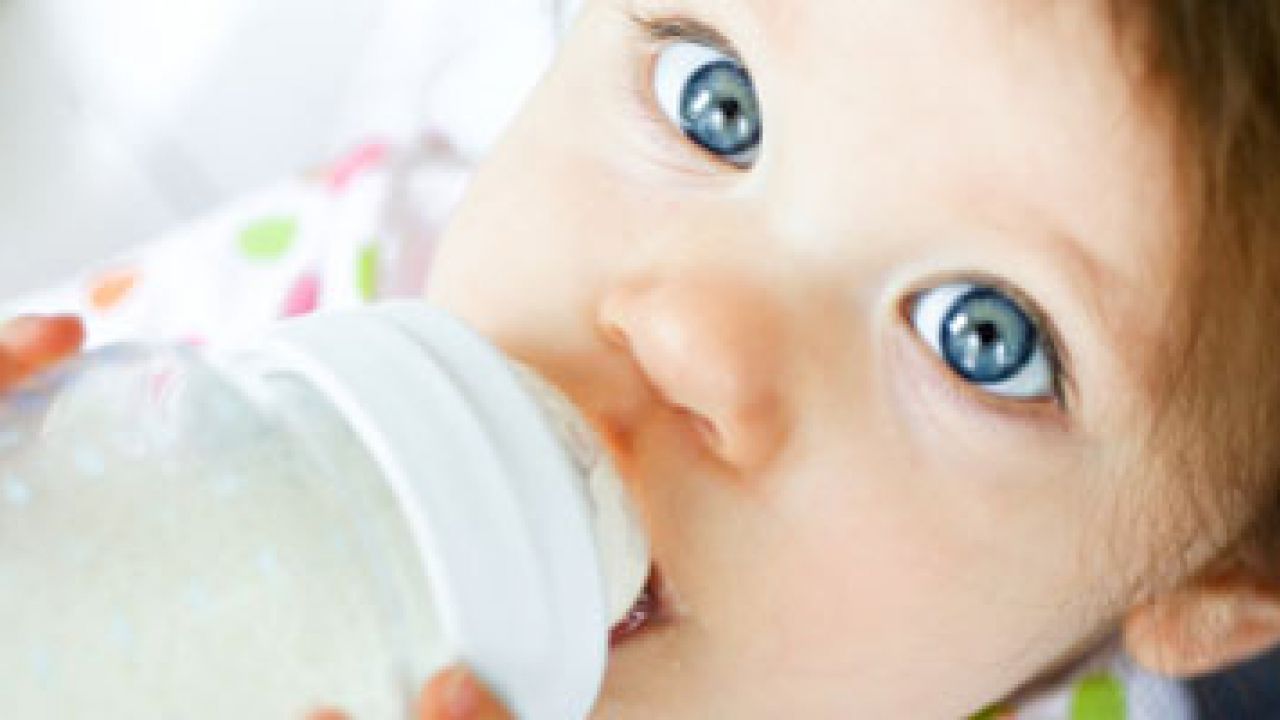
Earlier this month, we daylighted a CDC report that showed perchlorate contamination in infant formula. Not surprisingly, we received quite a few questions about formula that week, so we put these recomendations together to supplement our perchlorate report FAQ.
Breast milk is best, but most families use formula to supplement or replace it when needed. If you use formula, here are some tips for choosing and using the ones that are safest for baby.
Infants need breast milk or formula. Information about contaminants in formula and water can be scary, but remember that infants less than 1 year old should not be fed straight cow milk, and other drinks might not meet their complex nutritional needs. Breast milk and formula are the best foods for infants.
Choose powdered. A toxic chemical called bisphenol-A (BPA) can leach from the lining of metal cans and lids. Liquid formulas have higher levels, so powdered is a better bet. If your pediatrician recommends liquid formula, choose the types sold in plastic containers and avoid ready-to-eat.
Use soy formula only if medically necessary. The American Association of Pediatricians recommends that soy formula use be limited to infants who need it for medical reasons.
There are longstanding concerns that natural plant estrogens in soy formula may affect the developing baby's body. There is not enough research to make a solid conclusion, but in the meantime we recommend you limit soy formula use when possible.
Use filtered water. Both bottled and tap water can contain contaminants that are toxic for babies whose sole or main source of food is formula. Examples are fluoride, lead and perchlorate. If you have fluoride, lead or perchlorate in your water, use a reverse osmosis filter. The American Dental Association recommends making formula without fluoridated water.
Avoid bottled water - including 'infant' water - because contaminants are not known. For the safest tap water, contact your local drinking water supplier to identify contaminants, then choose the most effective filter for them.
Choose glass or BPA-free plastic bottles. Plastic bottles can leach a toxic chemical called bisphenol-A (BPA) into formula. Most companies sell non-BPA plastic. Look for details on packaging or from the manufacturer.
Always avoid
- Unfiltered water when reconstituting formula.
- Ready-to-eat liquid formulas in metal cans.
- Old or used plastic baby bottles; they are more likely to contain and leach BPA.



